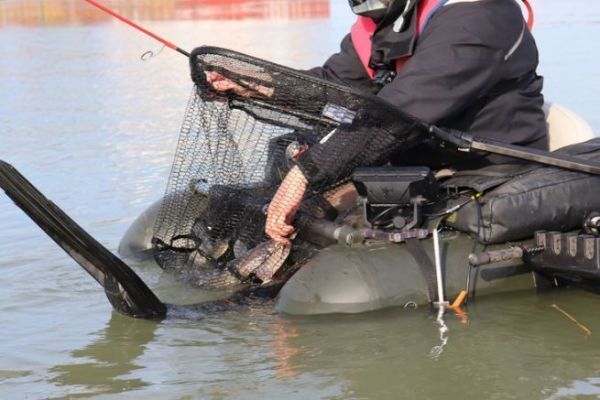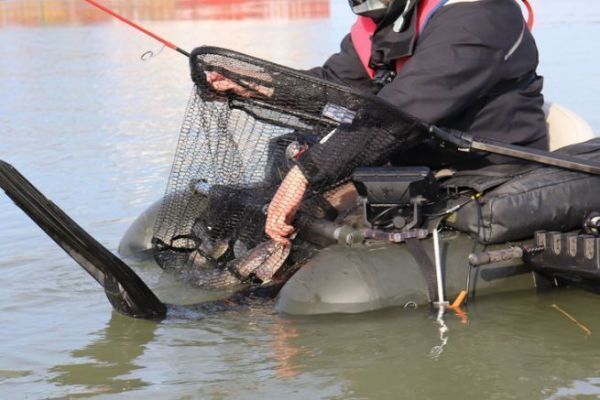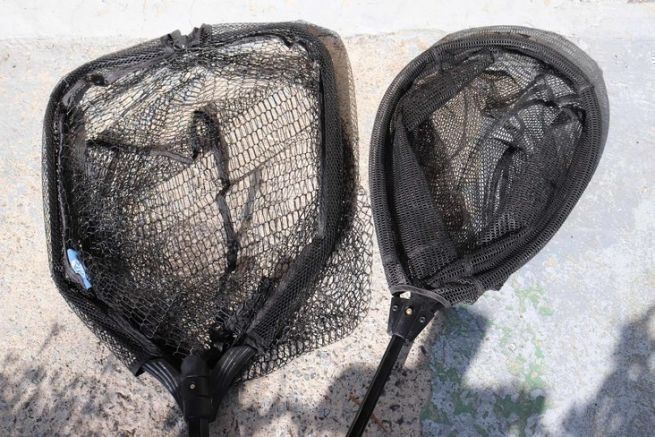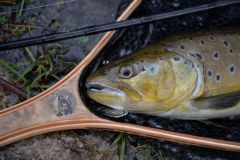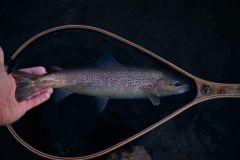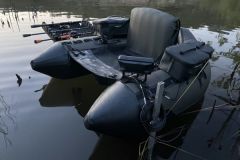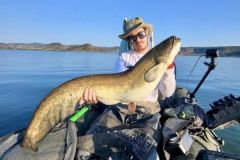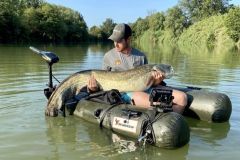1 - Ease of finishing a fight
When a fight with a fish comes to an end and it's time to grab it, it's not always easy to take action, between hooks sticking out, fish teeth... The landing net makes it easy to take action, without hesitation and without asking too many questions.
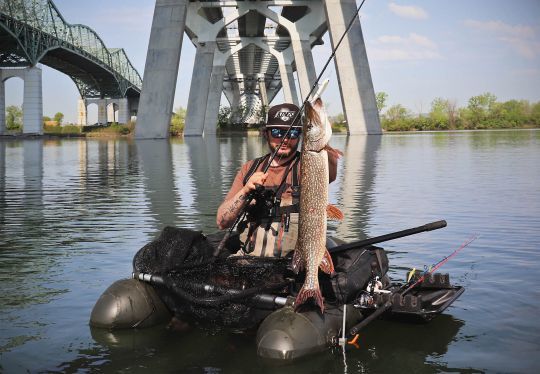
2 - Safety
Using a landing net allows you to put an end to the fight more quickly and thus avoid any accidents that may occur when you have difficulty grasping a catch. Finding yourself with a hook stuck in your hand or in your float-tube, in the middle of a body of water or river, is not what you want, and using a landing net helps to keep the fish you bring in at a distance from the float-tube.
3 - Fish welfare
Between holding a fish out of the water while you unhook it, or keeping it in the water with a landing net, the latter is clearly desirable for the health of the fish. Using a landing net also means thinking about the well-being of the fish, especially when you're practicing catch and release! What's more, as the fight is over more quickly, the fish's fatigue and stress are also reduced. Last but not least, having the fish waiting in the landing net gives you the freedom to do other things, such as pick up a pair of pliers or get your camera ready.
4 - Fish storage
I often use my landing net as a basket to hold fish when I find a good area and want to cast quickly to exploit its full potential, without immediately releasing my catch.
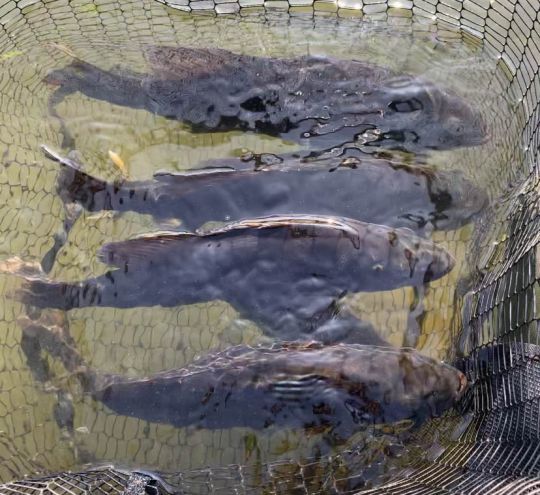
This practice is often used on perch, so as not to scare away the shoal, but it makes sense for other species, such as black-bass and pike-perch, among others.
